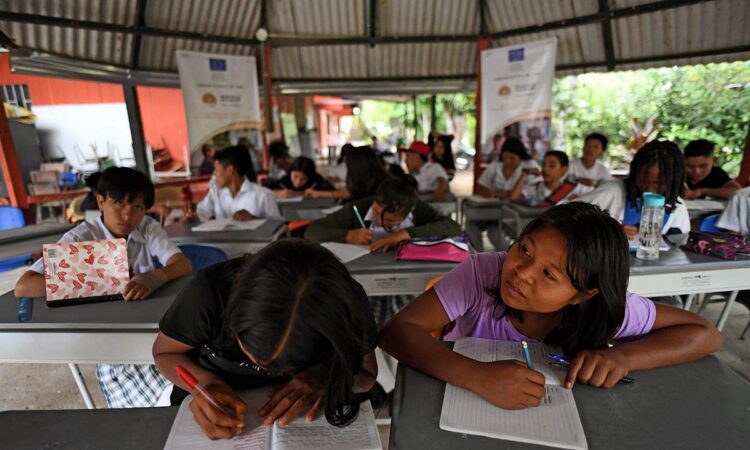
“I would like to become a nurse or a doctor,” says Mariana, an indigenous girl from Colombia. She is an student of “El Refugio”, an EU-funded school for indigenous children managed by our partner Diakonie in the Guaviare department.
In Colombia, students living in isolated and long-marginalised rural areas have been indiscriminately and disproportionately affected by armed violence. In 2022 alone, more than 268,000 children and adolescents faced conflict-related violence or risks.
In every conflict, children and adolescents bear the brunt. They are exposed to kidnappings, murders, displacement, or forced recruitment, which hinder their access to adequate education and inflict enduring psychological trauma.
Indigenous and Afro-descendant children and adolescents often reside in areas that non-state armed groups consider essential for their illegal operations. Their dreams of receiving an education, having a better future, and helping their communities may be unattainable due to the violence.
According to the Colombian Public Ministry, since the signing of peace agreements with the Revolutionary Armed Forces of Colombia (FARC) in 2016, some 8,246 children have been victims of forced recruitment. Of these, 9.2% belong to indigenous groups and 6.6% are Afro-descendants.
The EU funds Diakonie and Benposta to facilitate access to education for indigenous children and adolescents in conflict-affected areas of Colombia. Their work aim to prevent forced recruitment and help children regain a sense of well-being.
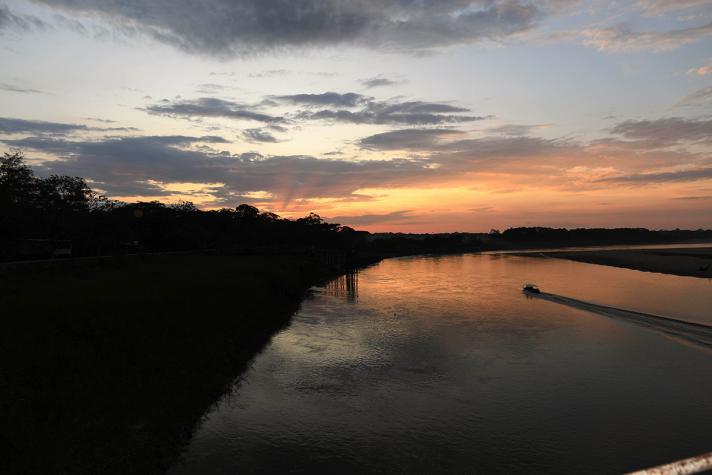
The department of Guaviare is nestled in the Amazonian Forest and crossed by the majestic Amazon and Orinoco rivers. Despite the oddly calm and peaceful appearance, Guaviare has been severely affected by armed conflict.
© European Union, 2023 (photographer: Camila Díaz)
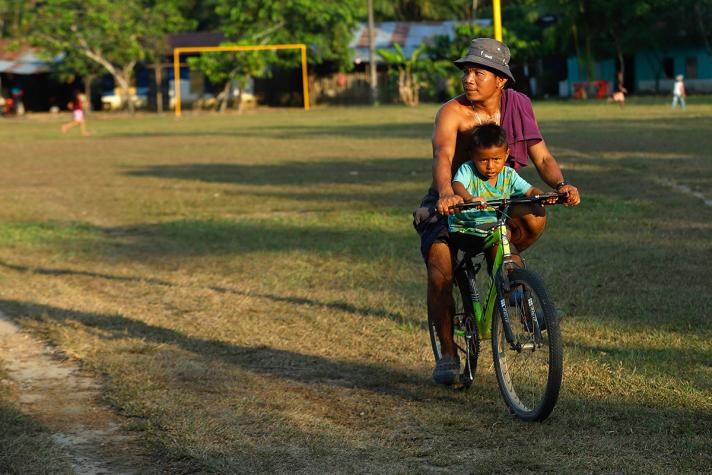
Non-state armed groups fight to control indigenous lands for illicit activities. Violence destroys the lives, culture, and social fabric of indigenous peoples in Guaviare, who have been affected for decades by a war they never wanted.
© European Union, 2023 (photographer: Camila Díaz)
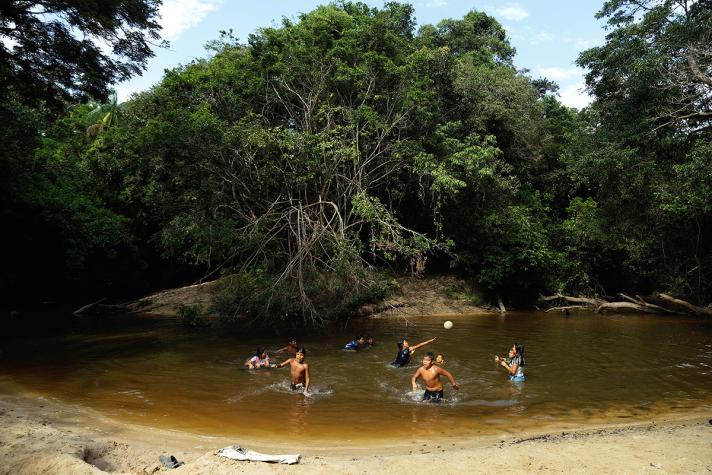
In indigenous areas, educational opportunities are below standard and do not align with indigenous cultures. Due to conflict, isolation and lack of opportunities, the illiteracy rate is around 16.4%, more than 3 times the national rate.
© European Union, 2023 (photographer: Camila Díaz)
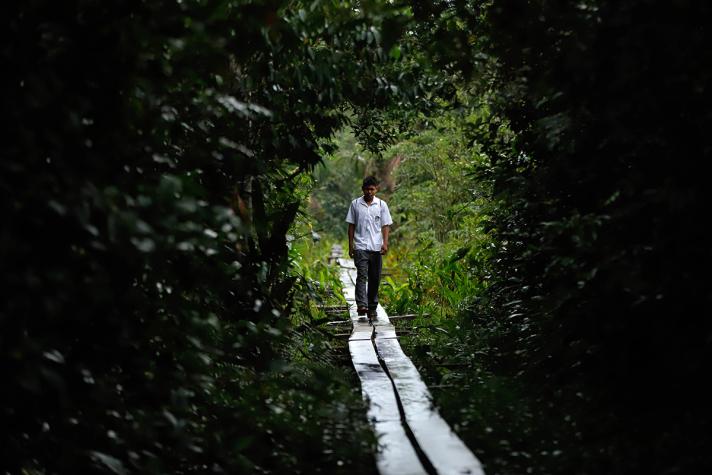
The journey to school can be dangerous, with long distances, the presence of abandoned landmines along the way, and the lack of safe and affordable transportation. These challenges often contribute to high rates of school dropouts.
© European Union, 2023 (photographer: Camila Díaz)
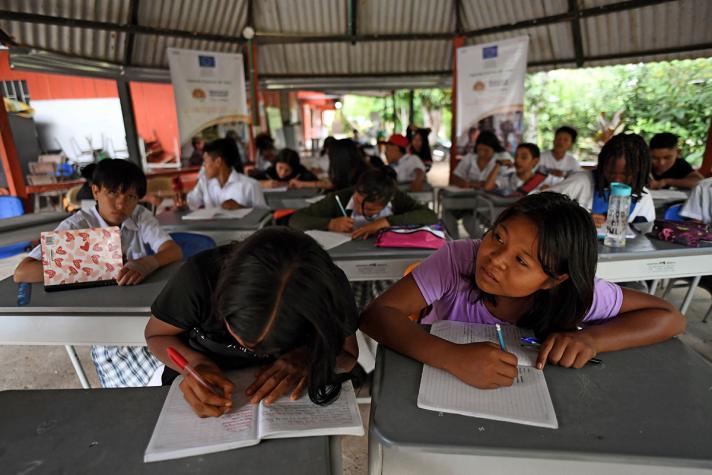
We fund the “El Refugio” indigenous school, with 35 students. Here, our partner Diakonie provides supplies, trainings for teachers and improves the infrastructures. The aim is that children can learn, play, and receive psychological support.
© European Union, 2023 (photographer: Camila Díaz)
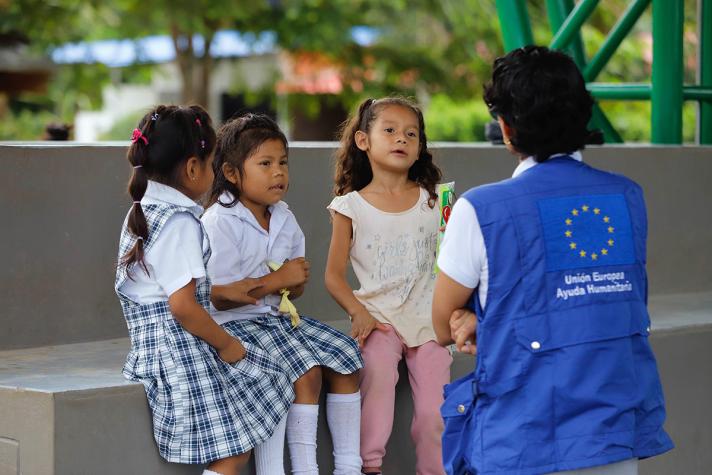
“These children have to deal with extreme poverty, which prevents them from buying school supplies,” says Thomas Dehermann-Roy, head of the EU humanitarian office in Colombia. “Providing the essentials to pursue an education prevents school dropouts.”
© European Union, 2023 (photographer: Camila Díaz)
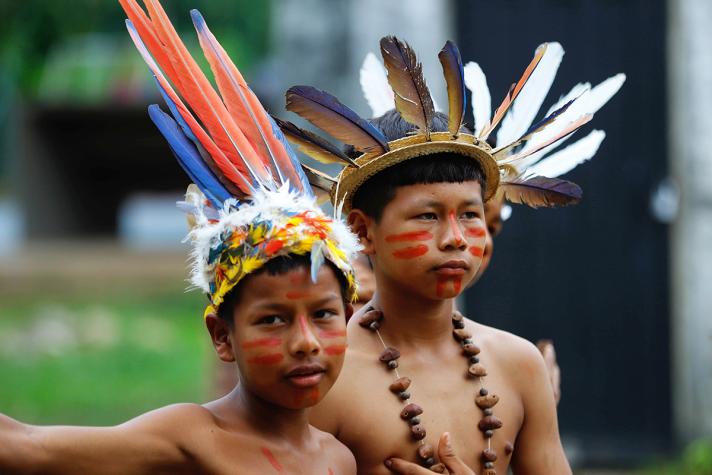
To boost the children’s self-esteem and encourage them to continue attending school, the EU and its partners carry out extracurricular learning activities. These include art and sports, which help them to move away from conflict dynamics.
© European Union, 2023 (photographer: Camila Díaz)
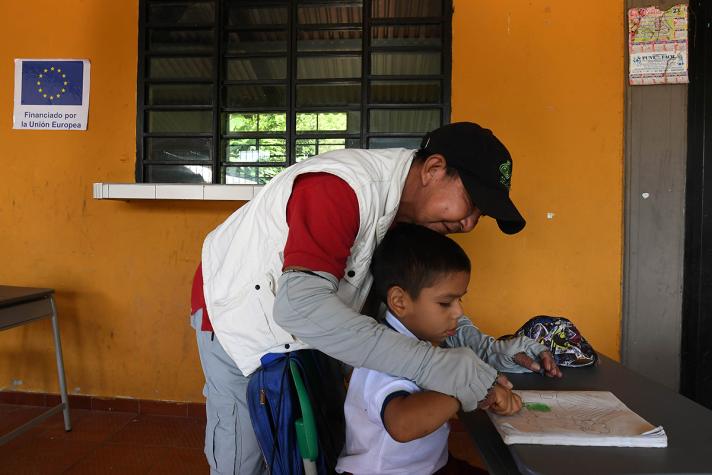
“Facilitating access to education also means respecting cultural identities,” says Angela Mesa, Diakonie Coordinator in Colombia. “This is why we provide materials in indigenous languages and promote the inclusion of indigenous people.”
© European Union, 2023 (photographer: Camila Díaz)
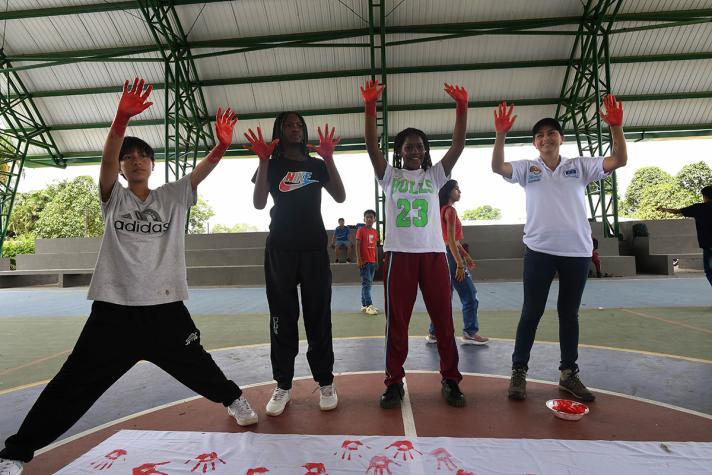
The EU funding also allows Diakonie to promote meaningful awareness-raising activities, such as sessions on gender-based violence and collective workshops against the use of child soldiers.
© European Union, 2023 (photographer: Camila Díaz)
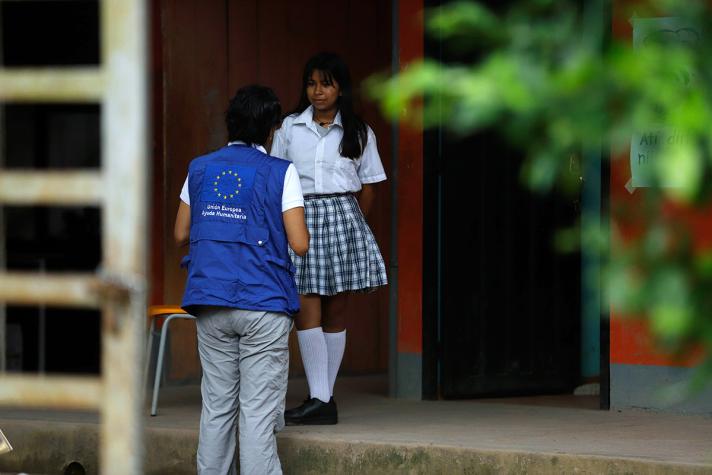
“I would like to become a nurse or a doctor,” says Mariana, one of the indigenous students of El Refugio. Nurturing dreams and forging the tools to realise them is the school’s task. Education in emergencies is among the EU humanitarian priorities
© European Union, 2023 (photographer: Camila Díaz)
Story by Ruth Silva, Information and Communication Assistant for Latin America and the Caribbean, EU Civil Protection and Humanitarian Aid Operations.
Publication date: 12/05/2023






